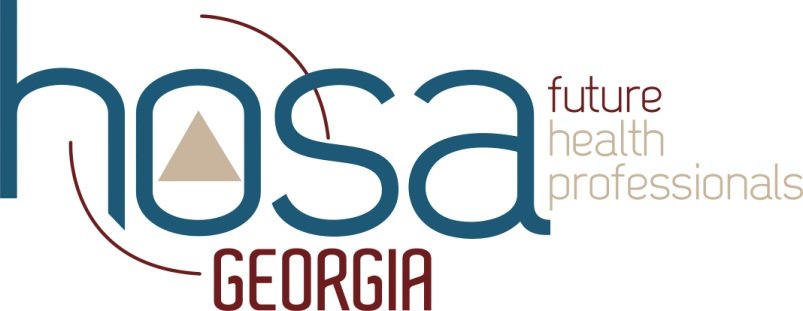E- Magazine: From Classroom to Career: Key Soft Skills for Aspiring Healthcare Professionals
From Classroom to Career: Key Soft Skills for Aspiring Healthcare Professionals
By: Shriya Kunam
In the fast-paced world of healthcare, technical knowledge, and clinical expertise are only part of the equation for success. Equally important are the soft skills that help HOSA members navigate their career paths, build meaningful connections, and stand out in competitive environments. Whether you’re looking to land your first internship or aiming for a competitive research position, these skills will provide a solid foundation for your journey!
1. Crafting a Standout Resume
Your resume is often the first impression you make on a potential employer or mentor, so it’s crucial to make it count. A strong resume should be clear, concise, and tailored to the specific opportunity you are applying for. Here are some key tips for creating a resume that stands out:
● Focus on Relevant Experience: Highlight experiences that are directly related to healthcare or demonstrate skills valuable to the field. This could include volunteer work, leadership roles in HOSA, participation in healthcare-related clubs or events, or shadowing experiences.
● Use Action-Oriented Language: Begin each bullet point with a strong action verb, such as "organized," "led," or "developed." This makes your accomplishments sound more dynamic and impactful.
● Quantify Achievements: Whenever possible, use numbers to quantify your accomplishments. For example, instead of saying, "Assisted in a local health fair," you could say, "Helped organize a health fair attended by over 300 community members."
● Include Keywords: Many employers use software to scan resumes for specific keywords related to the job. Make sure to incorporate relevant terms from the job description into your resume to increase the chances of passing through these automated filters.
● Proofread Carefully: Even a small typo can leave a negative impression. Review your resume multiple times, and consider asking a mentor or peer to check for errors.
2. Mastering the Art of Cold Calling and Cold Emailing
Reaching out to professionals or organizations directly can open doors to opportunities that are not publicly advertised. However, cold calling and emailing can be daunting, especially for those who are not used to initiating contact with strangers. Here are some tips to help you build confidence and increase your chances of success:
● Do Your Research: Before contacting someone, take the time to learn about their background, work, and any recent projects they are involved in. Mentioning specific details shows you are genuinely interested and have put effort into understanding their work.
● Be Clear and Concise: Keep your message short and to the point. Start with a brief introduction about who you are, explain why you are reaching out, and state what you hope to achieve from the conversation (e.g., an informational interview, job shadowing opportunity, or research position).
● Showcase Your Passion: Express your genuine interest in the field and explain why you are passionate about healthcare. A personal story or motivation can help make your message more compelling and memorable.
● Follow Up, But Don’t Be Pushy: If you don’t receive a response after a week or two, it’s okay to send a polite follow-up message. However, respect their time and avoid being overly persistent.
3. Showcasing Your Passion and Qualifications
To secure internships and research opportunities, it’s essential to showcase not only your qualifications but also your enthusiasm for the field. Here are some ways to effectively convey your passion:
● Develop a Strong Personal Statement: Your personal statement or cover letter is an excellent place to share your passion for healthcare. Highlight specific experiences that inspired you to pursue a career in this field, and explain how they have shaped your goals.
● Share Your Journey: Use platforms like LinkedIn to share your experiences, insights, and growth as an aspiring healthcare professional. This not only demonstrates your passion but also helps build a professional network and enhances your visibility.
4. Networking Effectively
Building a network of contacts in the healthcare field can provide invaluable support and guidance throughout your career. Here are some networking tips:
● Attend Conferences and Events: Competing in events pertaining to your interests at HOSA conferences, and engaging in workshops, and other healthcare events allows you to meet like-minded peers, mentors, and professionals who can provide guidance and opportunities.
● Seek Mentorship: Don’t be afraid to ask professionals or peers for mentorship and advice! Many are willing to offer guidance to motivated students, especially if you take the first step to simply ask! A mentor can provide you with insights into the industry, help you navigate challenges, and even recommend you for opportunities.
5. Gaining Hands-On Experience
To truly stand out in the healthcare field, hands-on experience is essential. Here are some ways to get started:
● Volunteer at Local Clinics or Hospitals: Volunteering offers firsthand experience in a healthcare environment, allowing you to observe professionals and understand the day-to-day responsibilities of various roles.
● Apply for Internships Early: Research and apply for internships well in advance. Many programs have early deadlines, so it’s important to plan accordingly.
● Participate in Research Projects: If you are interested in research, reach out to professors, researchers, or institutions conducting studies in your area of interest. Many are open to having motivated students assist with their projects.
● Leverage HOSA Opportunities: As a HOSA member, take full advantage of the opportunities provided through competitions, events, and leadership roles to gain experience and develop your skills.
Now, Let’s Put it in Practice!
Developing these key soft skills will set you apart as a well-rounded candidate in the competitive field of healthcare. Start by crafting a strong resume, learning to communicate effectively through cold calling and emailing, showcasing your passion, networking strategically, and seeking hands-on experience. Remember, your journey in healthcare begins with the first step you take to learn, grow, and connect. Embrace these skills, and you will be well on your way to achieving your career goals!

